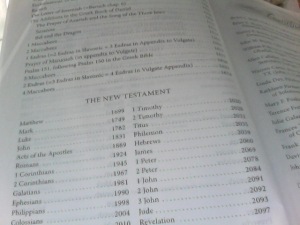Where there is Mercy and Prudence, there is neither Excess nor Harshness.
St. Francis (The Admonitions, XXVII)
[The Message of St. Francis; New York: Penguin Studio, 1999, p. 9]
Here’s another cross pattern, Prudence matching Excess and Mercy a foil for Harshness. One of these pairs is enough for today…
Years ago, I had a daily calendar/notepad – sticky notes with the date and a short saying. Most of them I’d use for this or that purpose, then toss them away. A few struck such a chord that I stuck them to my desk. One of these sayings:
There’s brutality and there’s honesty: there’s no such thing as brutally honest.
Words can be the an ocean wind in Winter – cutting, cold, penetrating muscle and bone. They whistle in our ears and bend our backs. We shrink before them, turning in upon ourselves to avoid exposure. Long after the words are spoken, our teeth still chatter and the shivers remain. In our frostbitten souls we hold a question and we fear its answer: Could such words be true?
In a small sense, cutting words shine a light. Faults and imperfections come with being human. A careless tongue or sharp wit can highlight such things. We are reduced to a collection of blemishes and incompetence. But this isn’t really the truth – it’s a keyhole version of reality, allowing only one small look at an unseen whole.
The big lie such words tell isn’t so much what is said but what is implied: if we aren’t perfect, we are worthless. The lie lies in believing the implication. Truth be told, the words would be something like this: You aren’t perfect, and you never will be. I’m not perfect, and I never will be. But we are precious, and a unique gift to this world. We are loved, and anyone who tells us different is sadly mistaken.
If I use words to cut down, I have a keyhole’s view; when I stand up and open the door, only words of love can describe what I see.
Love for the whole and mercy for the imperfections – true words always offer a glimpse of these.

